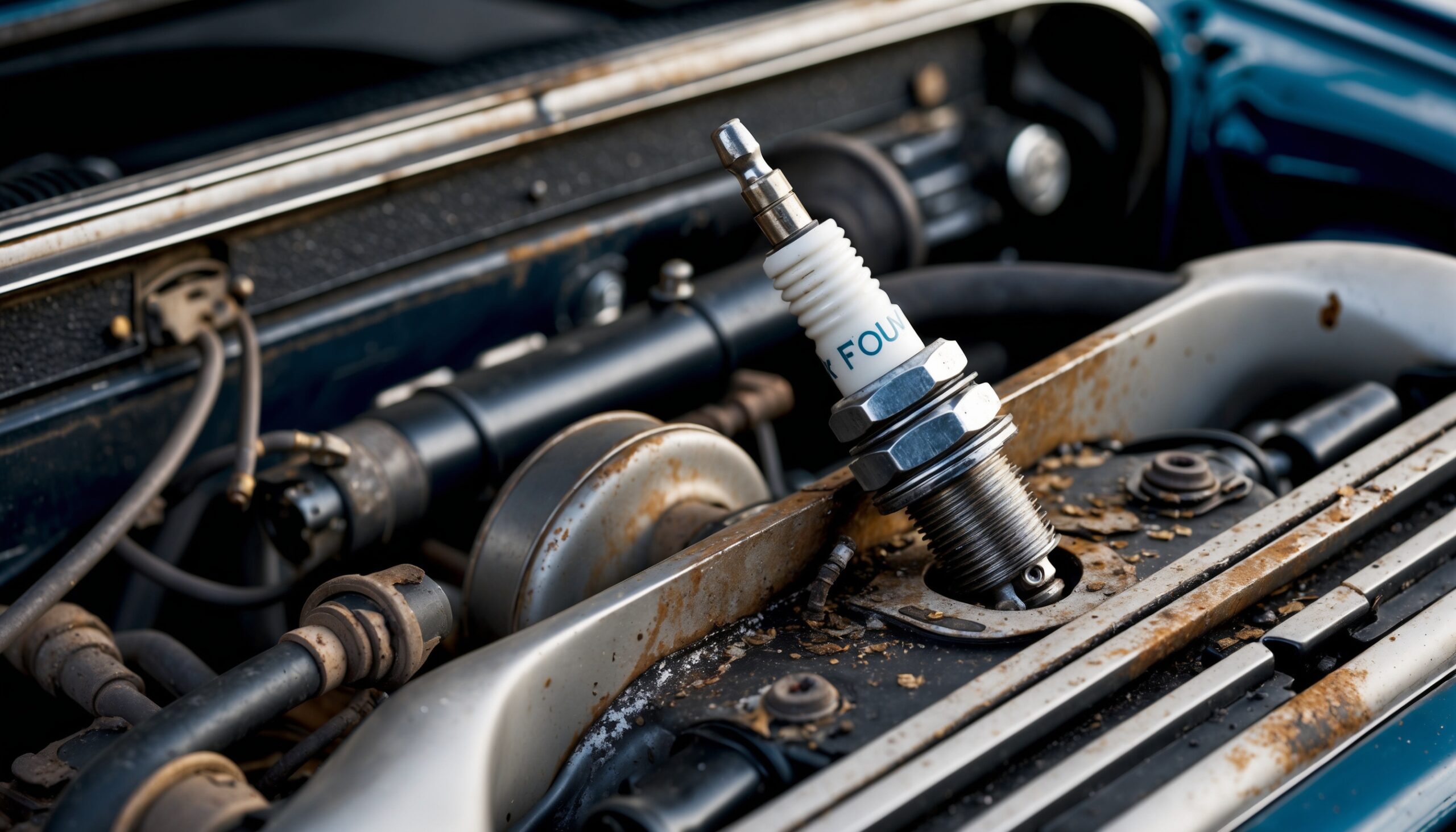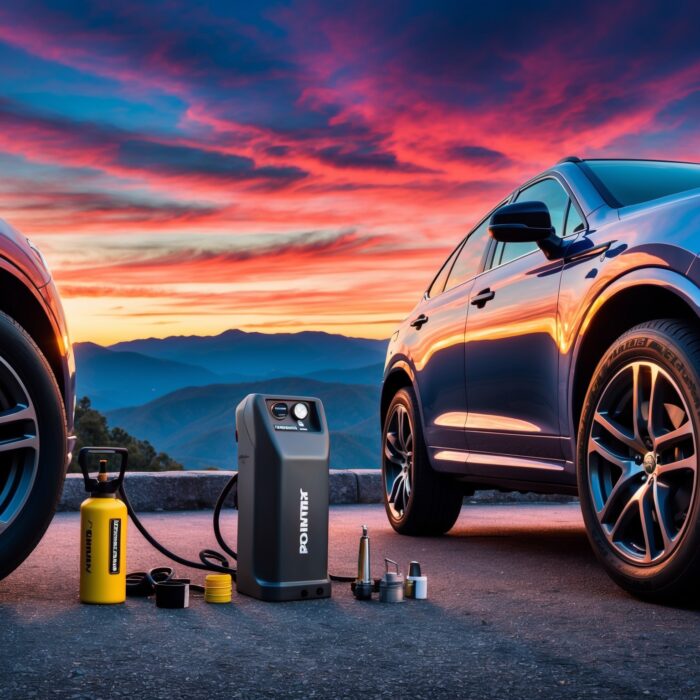What Causes Spark Plug Fouling?
Welcome to another thrilling dive into the world of automotive care here at Torque Feed! If you’ve ever had a rough start with your engine or noticed a drop in performance, you might be dealing with one of the most common yet often overlooked issues: spark plug fouling. Buckle up, because we’re about to explore what causes spark plug fouling, its symptoms, and how to keep your engine running smoothly.
Understanding Spark Plugs
Before we jump into the nitty-gritty of fouling, let’s take a moment to appreciate the spark plug itself. A spark plug is a small but mighty component that ignites the air-fuel mixture in your engine’s combustion chamber. This ignition creates the power that moves your vehicle. When spark plugs function properly, they ensure your engine runs efficiently. However, issues arise when they become fouled.
What is Spark Plug Fouling?
Spark plug fouling happens when deposits accumulate on the tip of the spark plug, preventing it from creating a strong spark. This can lead to misfires, poor fuel economy, and overall engine performance issues. Think of it like a clogged artery; when the flow is restricted, the whole system suffers.
Types of Spark Plug Fouling
Fouling can occur in several different ways, each with its own causes and symptoms. Here are the most common types:
- Fuel Fouling: This occurs when excessive fuel enters the combustion chamber, leading to unburned fuel coating the spark plug.
- Oil Fouling: If oil leaks into the combustion chamber, it can create a greasy film on the spark plug.
- Carbon Fouling: This is caused by incomplete combustion, resulting in carbon deposits building up on the spark plug tip.
- Wet Fouling: Often caused by a rich fuel mixture, wet fouling results in fuel pooling on the spark plug.
- Dry Fouling: This typically occurs due to a weak spark or insufficient heat, leaving dry carbon deposits on the plug.
What Causes Each Type of Fouling?
Fuel Fouling
Fuel fouling is often a result of:
- Rich Air-Fuel Mixture: When the engine gets too much fuel and not enough air, it results in a mixture that’s too rich. This can happen due to issues with the fuel injection system.
- Faulty Fuel Injectors: If the injectors are leaking or malfunctioning, they can dump excess fuel into the combustion chamber.
- Poor Quality Fuel: Low-quality fuel can lead to incomplete combustion, which can create deposits on the spark plug.
Oil Fouling
Oil fouling often stems from:
- Worn Piston Rings: When piston rings wear out, they fail to keep oil out of the combustion chamber.
- Valve Seal Problems: Bad seals can allow oil to seep into the combustion chamber, leading to fouling.
- High Engine Oil Consumption: If your engine is burning oil at an excessive rate, you’re likely to experience oil fouling.
Carbon Fouling
Carbon fouling can occur due to:
Also Read: These Car Brands Are Moving Production To India
- Infrequent Short Trips: Short trips prevent the engine from reaching optimal operating temperature, leading to incomplete combustion.
- Old or Low-Quality Oil: Poor lubricants can lead to higher levels of carbon deposits.
- Ignition Timing Issues: If the timing is off, it can cause incomplete combustion, leading to carbon build-up.
Wet and Dry Fouling
Wet and dry fouling are often a combination of the factors mentioned above. Wet fouling is typically caused by a rich mixture, while dry fouling can result from weak sparks or insufficient heat to properly combust the fuel.

Symptoms of Spark Plug Fouling
Now that we understand the types of fouling, let’s discuss how you can identify if your spark plugs are fouled:
- Rough Idling: If your engine shakes or stutters while idling, it might be a sign of fouled spark plugs.
- Reduced Power: A loss of power during acceleration can indicate spark plug issues.
- Poor Fuel Economy: If you’re filling up more often than usual, it could be due to inefficient combustion caused by fouled plugs.
- Hard Starting: Difficulty starting your engine is often a red flag when it comes to spark plug health.
- Engine Misfires: If your engine hesitates or misfires, it’s time to check those spark plugs.
How to Prevent Spark Plug Fouling
Prevention is always better than cure, and keeping your spark plugs clean and functional can save you a world of trouble. Here are some tips to avoid spark plug fouling:
- Use Quality Fuel: Always fill up with high-quality fuel that meets your vehicle’s specifications.
- Regular Maintenance: Follow your vehicle’s maintenance schedule to keep components like the fuel system in check.
- Proper Engine Tuning: Ensure that your engine is properly tuned for optimal performance.
- Drive Regularly: Avoid frequent short trips. Longer drives allow the engine to reach its optimal temperature, promoting better combustion.
- Check Oil Levels: Regularly check and change your engine oil to prevent oil fouling.
Diagnosing Spark Plug Fouling
If you suspect that your spark plugs are fouled, here’s how you can diagnose the issue:
- Visual Inspection: Remove the spark plugs and inspect them for any signs of fouling. Look for deposits and discoloration.
- Check Engine Codes: Use an OBD-II scanner to check for any trouble codes that can give clues about what’s wrong.
- Compression Test: A compression test can help identify if there are any issues with piston rings or valves.
Cleaning or Replacing Spark Plugs
If you find that your spark plugs are indeed fouled, you have a couple of options: clean or replace them. Here’s what you need to know:
Cleaning Spark Plugs
For light fouling, you may be able to clean your spark plugs:
- Use a Wire Brush: Gently scrub the spark plug with a wire brush to remove deposits.
- Use a Cleaning Solution: Some solutions can help dissolve carbon and oil deposits.
- Reinstall: After cleaning, reinstall the plugs, making sure they’re properly gapped.
Replacing Spark Plugs
If fouling is severe, replacement is often the best route:
- Select the Right Plugs: Consult your vehicle’s manual for the correct spark plug type and gap.
- Install Properly: Ensure each spark plug is installed to the manufacturer’s torque specifications.
When to Seek Professional Help
Sometimes, spark plug fouling can be a symptom of a larger issue. If you’ve replaced or cleaned your spark plugs and still experience problems, it might be time to consult a professional mechanic. They can diagnose underlying issues related to fuel delivery, ignition timing, or engine compression.
Final Thoughts
Understanding spark plug fouling is essential for any car enthusiast looking to keep their vehicle in peak condition. By being proactive about maintenance and paying attention to your engine’s performance, you can keep fouling at bay and enjoy a smoother ride. Remember, a well-maintained engine is not just about performance; it’s also about longevity. So, keep those spark plugs clean, and your car will thank you!
Thanks for joining us on this informative ride through the world of spark plugs. Stay tuned to Torque Feed for more tips, tricks, and insights to keep your automotive passion alive!
Also Read: Kawasaki Revives The KLE500 – And This Time, US Riders Get A Shot












